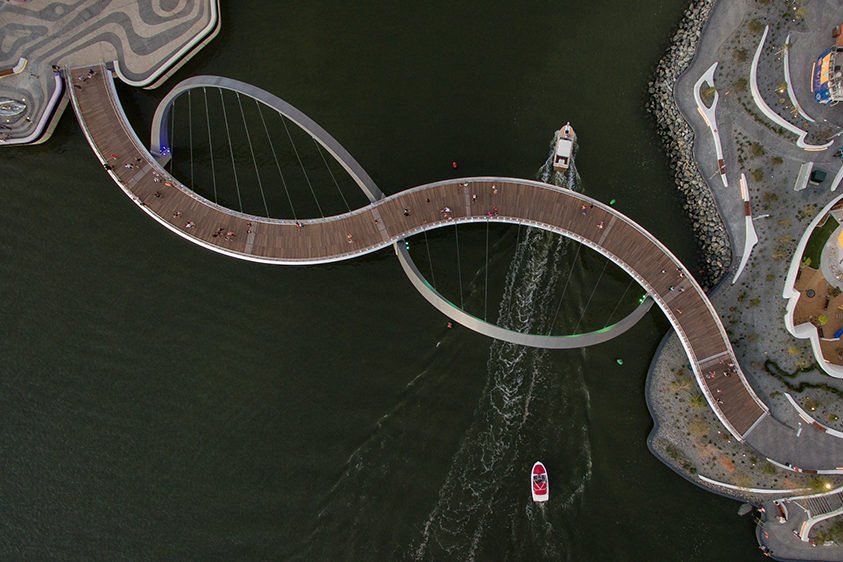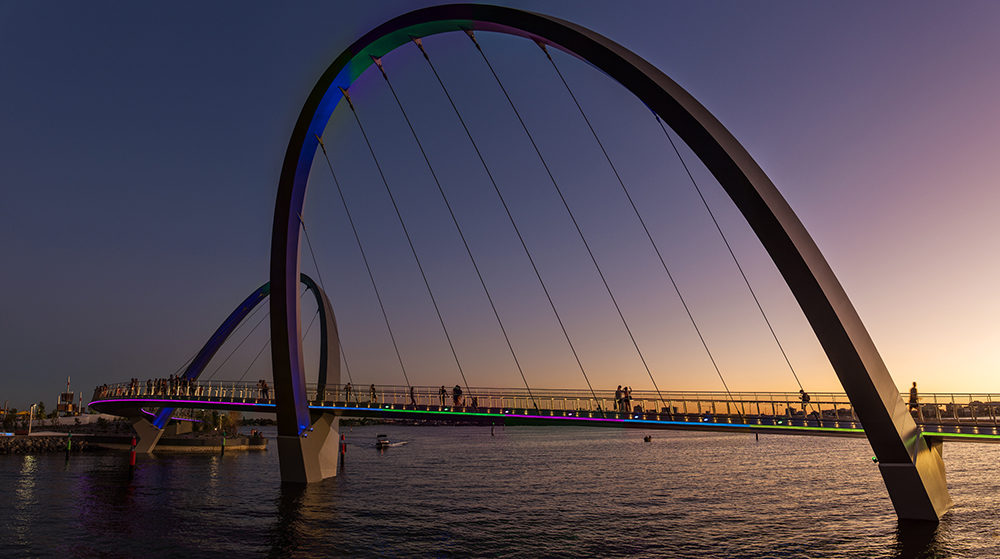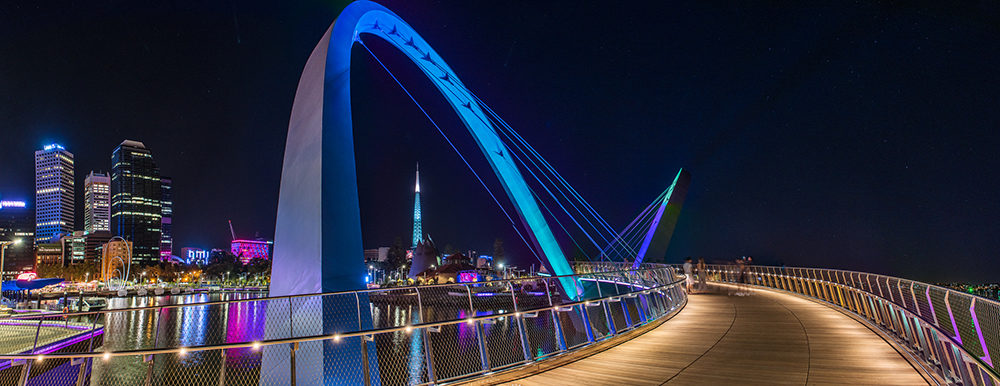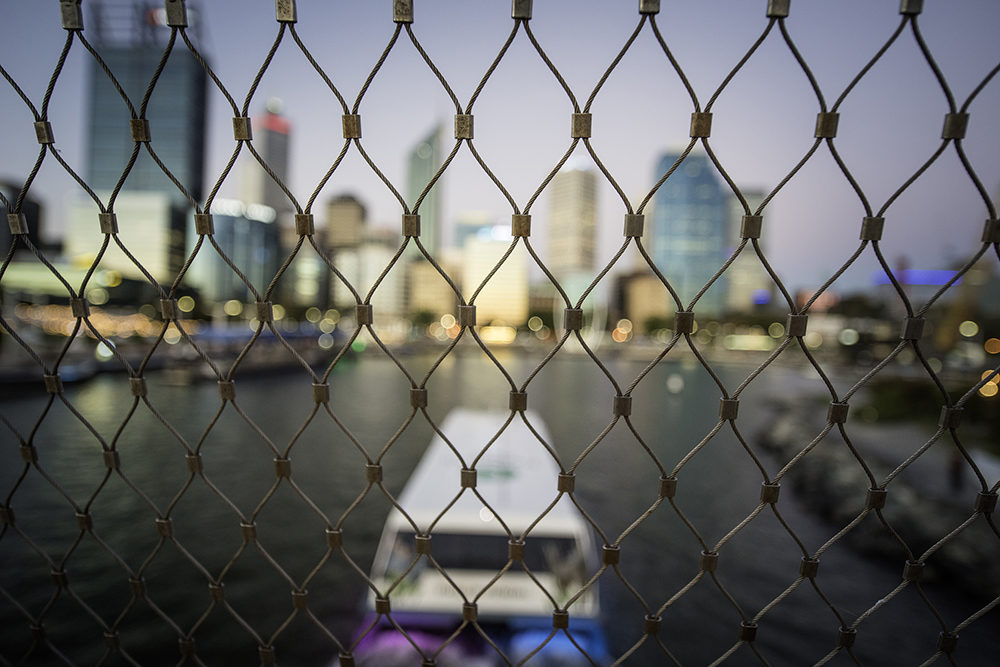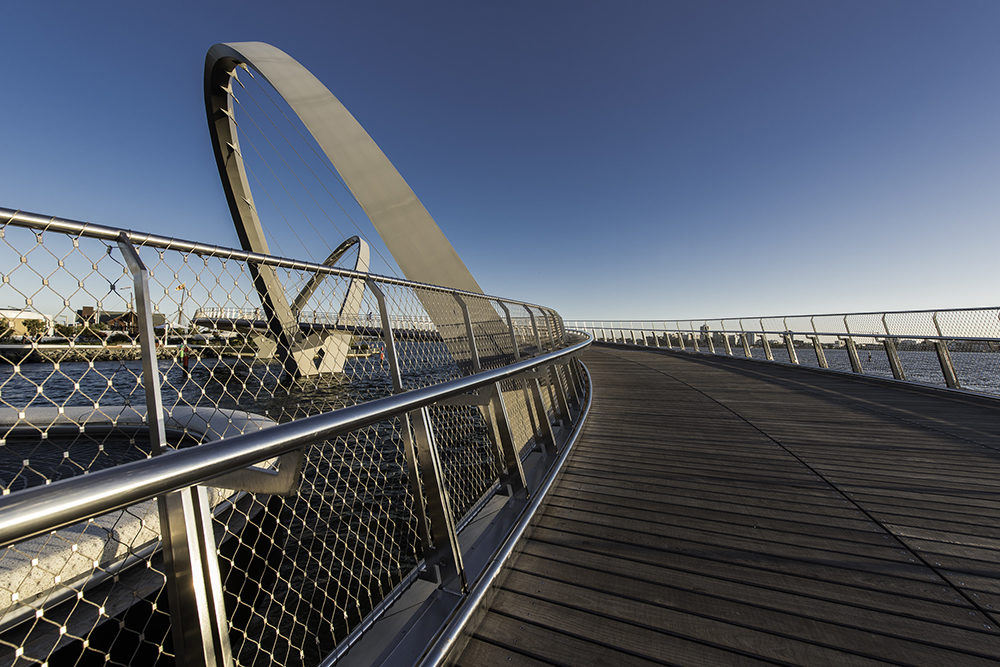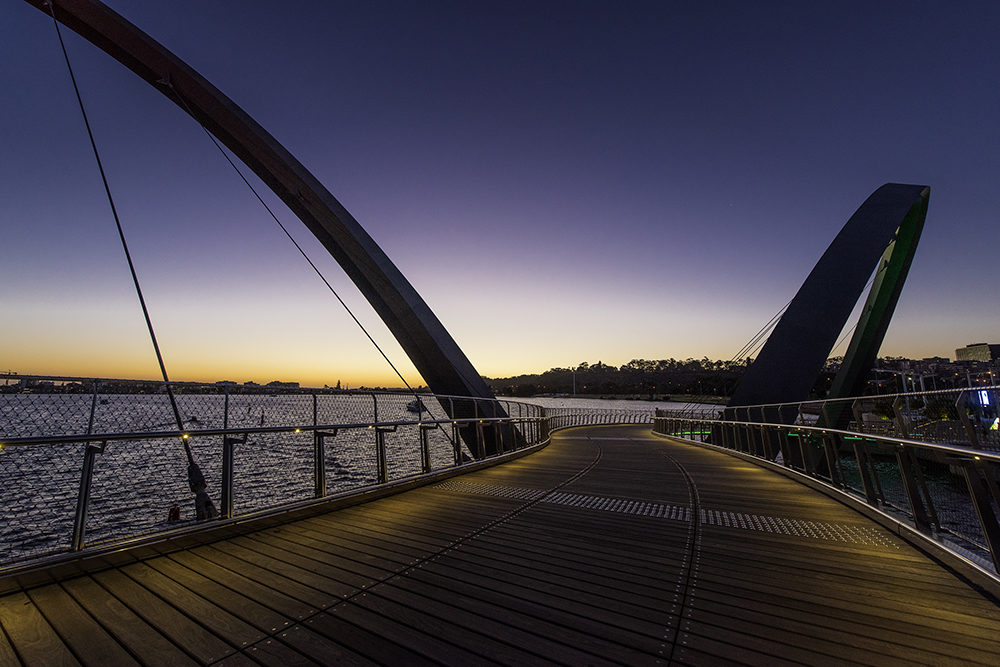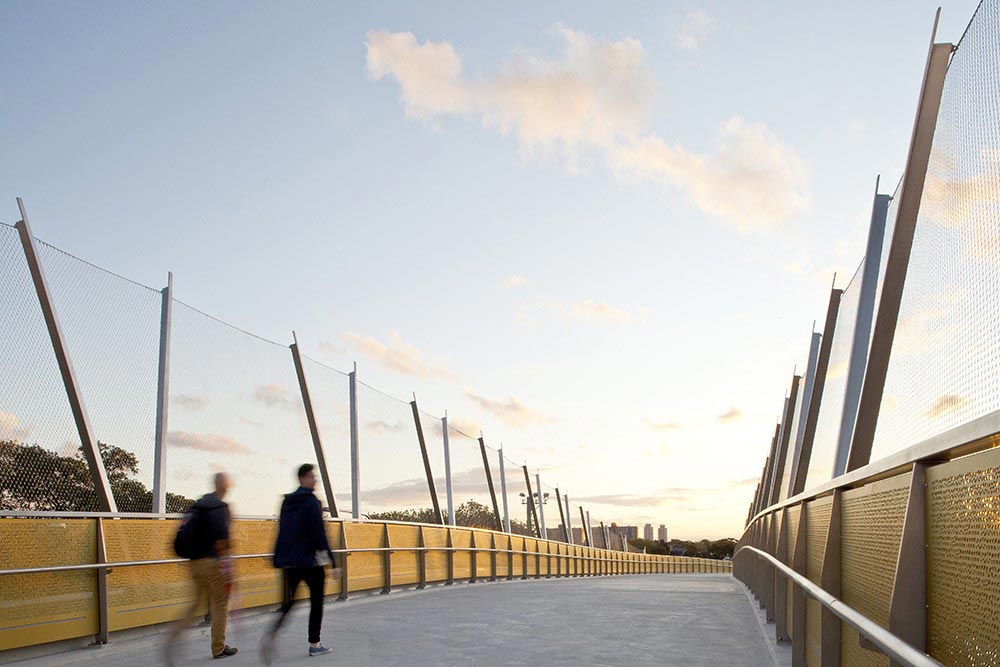Webnet: flexibilidad en la planificación, fabricación e instalación
Puente peatonal y ciclista Elizabeth Quay
Arcos y curvas
El puente fue concebido para mantener el circuito que recorre los alrededores de los puentes, popular entre los peatones y los ciclistas, y permitir el paso de los ferris. Asimismo, se quiso sacar provecho de su ubicación prominente con un elemento arquitectónico de aspecto espectacular. Lograr la holgura necesaria para el canal de navegación supuso un cambio sustancial en el nivel desde Williams Quay hasta el extremo occidental del puente. Ello obligó al equipo de diseño de Arup Associates a curvar el tablero del puente para crear rampas extendidas en los puntos de acceso. La imponente curva en S se complementa con arcos para «reforzar la manera en que se experimenta el movimiento» a lo largo del tablero del puente, el cual es descrito por Arup Associates como «de altura en cambio constante y siempre curvándose en el plano».
Solución personalizada de malla para balaustradas
La arquitectura requería una balaustrada transparente, pero también necesitaba disponer de una solidez suficiente para resistir los impactos del viento. El diseño de la balaustrada sigue las curvas sobre el plano del tablero del puente; asimismo, se inclina hacia dentro y afuera, retorciéndose como un lazo en todo el largo del puente. En respuesta a este desafío técnico, Tensile Design & Construct diseñó una versión personalizada de la malla Webnet , caracterizada por la ausencia de obstrucciones, lo que supone un aumento de su capacidad para adaptarse a la estructura de soporte como un trozo de tela. El resultado satisfizo el objetivo del diseño sin sacrificar la seguridad: la malla está confeccionada para tolerar unas cargas máximas ejercidas por la muchedumbre de conformidad con el código nacional de construcción de Australia.
Ventaja modular
La malla se integró en ocho paneles, adaptándolos «in situ» a las curvas e integrándose en la balaustrada. Tensile se encargó de la ingeniería de la balaustrada y proporcionó asesoramiento antes de suministrar la solución final en calidad de contratista. La producción de las redes fue responsabilidad de Jakob Rope Systems, lo que permite una integración casi imperceptible de los rieles y la malla, permitiendo que las secciones se unan para crear dos piezas continuas. La estrategia modular optimizó la eficiencia de la instalación, por lo que el trabajo finalizó antes de lo planificado.
Los arquitectos trataron de lograr unas «formas estructurales puras y simples» para el puente de peatones y ciclistas Elizabeth Quay; la malla de Webnet fue uno de los productos que les ayudó a alcanzar dicha meta. La habilidad de Tensile para crear rápidamente una versión modular y personalizada de la malla Webnet con el fin de cumplir con las especificaciones del diseño contribuyó a que el puente fuera finalizado a tiempo para nuestro cliente, el contratista DASSH.
Arquitectos: Arup Associates, Perth, Australia
Ingeniería: Tensile Design & Construct, Sídney, Australia
Texto y fotografías: Tensile Design & Construct
